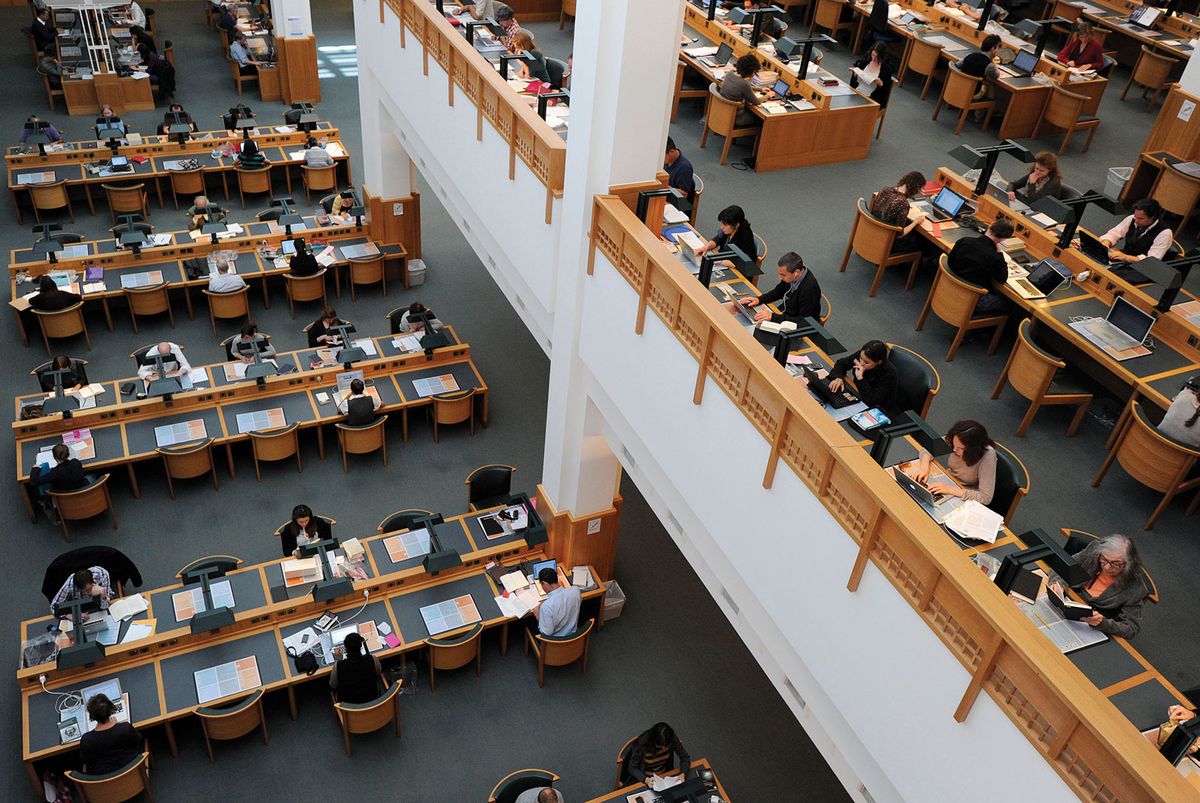UK postgraduate art and art history students say their research will be “seriously compromised” after the higher education funding body, UK Research and Innovation (UKRI), asked new and early-stage students to adapt their theses in the wake of the coronavirus crisis. UKRI is a non-departmental public body which brings together seven research funding organisations including the Arts and Humanities Research Council; it supports around 20% of all UK-based postgraduate researchers.
UKRI’s policy review in November prompted 770 academics belonging to the University and College Union to write a letter criticising the treatment of postgraduate students. Signatories from institutions such as the Royal College of Art say that, while they welcome UKRI’s early response to the crisis, which focused on those students close to submission, the review has failed those in the middle years of their research, who are “likely more seriously impacted than those early on in their research”. The review, they added, noted that 77% of those not in the final year were in need of an extension. Rory Duncan, the UKRI’s director of talent and skills, responded that the organisation had developed a portfolio of interventions including £60m additional funding for doctoral students.
The latest request to restructure doctoral projects is compounding problems for postgraduate students who have faced numerous obstacles during the Covid-19 pandemic. These include severely restricted access to libraries and archives, as well as the inability to travel and build international networks, an essential part of the scholarly process and future careers.
Nadim Samman, a curator at KW Institute for Contemporary Art, Berlin, received his PhD from the Courtauld Institute of Art in London; he says that the government is failing all students by not offering more financial support during this crisis. A current doctoral candidate at the Courtauld, who prefers to remain anonymous, says: “The UKRI request will have longer-term repercussions on the academic standards in our field as well as the Courtauld’s reputation as a world-leading centre for the study of art history.”
Our research projects have slowed down and many of us are struggling to function in a normal capacityDoctoral candidate, Courtauld Institute of Art
UKRI’s latest policy regarding extensions reiterates that students whose finance period ended between 1 March 2020 and 31 March 2021 would be funded to the end of their postgraduate degree. The organisation says it has so far allocated £180m in costed extensions for research grants as part of a phased process.
Students in limbo
An accompanying policy statement sets out expanding provisions to other students through £19.1m in additional funding given directly to research organisations (phase 2). “The allocation will not provide funding for all UKRI-funded students and extensions should be allocated on a needs-priority basis,” says the statement. Priority should be given to those in their penultimate year of funding who have now entered their final year of study (funding end date before or on 30 September 2021).
This leaves early and mid-stage doctoral students, as well as some students in their final year, in limbo. “With lack of support and worries about funding, our research projects have slowed down and many of us are struggling to function in a normal capacity. There is a hidden mental health crisis looming in our postgraduate community, and to date there has been very limited institutional support or acknowledgment of this,” the Courtauld student adds.
Individual institutions now have to decide whether postgraduate students can be granted extensions. At the Courtauld Institute, all final-stage PhD students previously due to submit in autumn 2020 have been granted registration extensions of up to six months, “an opportunity that will eventually be extended to all students affected by Covid as they approach their submission deadline”, says Stephen Whiteman, the head of research degree programmes at the Courtauld Institute.
Home students at the Courtauld currently pay £5,500 annually in fees while international candidates are charged £20,400. But obtaining funding for extensions is proving problematic. “The UKRI extension process has probably exacerbated uncertainty for students; their explanations are often difficult to understand, and the processes and eligibility for phase 1 extensions (last year) and phase 2 extensions (this year) are quite different,” says Whiteman.
Institutional support
Whiteman points out, though, that the “UK doctoral funding system is not entirely equitable”; some students have UKRI funding, which is effectively a three-year full scholarship, while others have internal Courtauld Scholarships or external non-UKRI scholarships, the terms of which vary. Many students also rely on loans or fund themselves.
“Where we can, we have tried to help,” Whiteman adds. “We have a hardship fund that is open to PhD students, and we have extended the scope and duration of our Training Needs fund to help support a wider range of research needs.” Crucially, the institute has waived writing-up fees (£750) for doctoral students in their fourth year (2020-21) and anticipates doing this again next year, Whiteman says.
There are other silver linings, such as increased access to online resources. The pandemic has highlighted the urgency of making more online material available to researchers, and this has been a welcome development for a discipline that historically has not been as ebook friendly, adds the Courtauld student.
But UKRI’s suggestions that students should speak to their supervisors about restructuring their PhD qualification is an ongoing concern. UKRI stresses that “the priority for students now is to adapt and adjust research projects to mitigate the delays caused by Covid-19”. The Courtauld student adds: “UKRI is essentially asking us to produce less rigorous and ambitious projects because they cannot offer us the proper funding or protections.”


